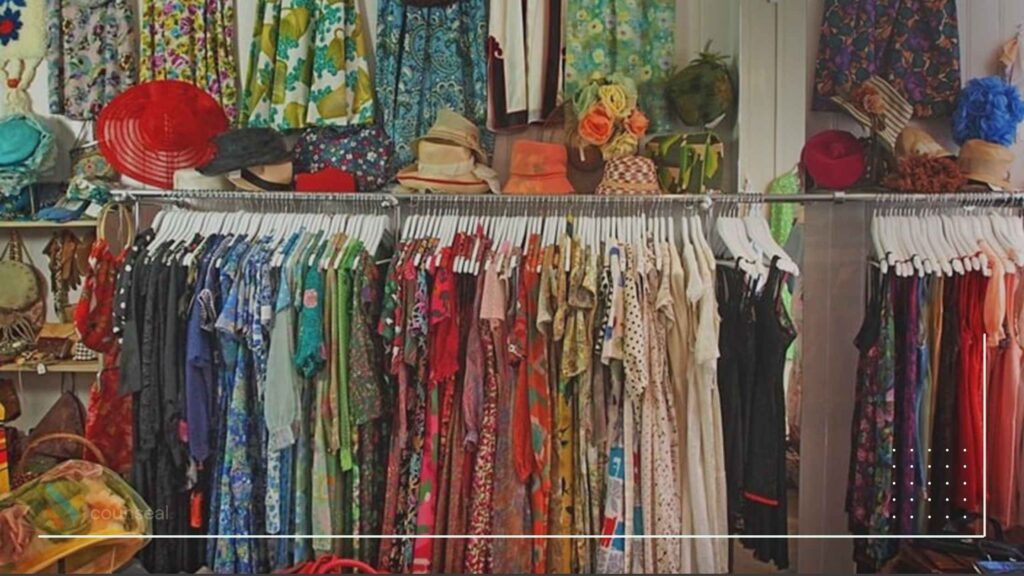Kickstart Your Boutique Business in Nigeria: A 7-Step Guide

by Counseal Team
Updated January 18, 2024
Starting a boutique business in Nigeria is an exciting adventure filled with immense potential.
Why, you ask? Well, fashion is an integral part of Nigerian culture and lifestyle.
Nigerians love to look good, and they are willing to spend on high-quality fashionable items.
With the Nigerian fashion industry valued at around $10 billion, there’s no denying that delving into a boutique business is a profitable venture. But like every other business, it requires careful planning, strategising, and execution to thrive.
But fret not, this article will guide you through the process of starting and growing your boutique business in Nigeria. Let’s dive in.
- Quick Takes
- 1.Understand the Boutique Business in Nigeria
- 2. Draw a Business Plan: Your Boutique's Blueprint
- 3. Fund Your Boutique Business: Unveiling the Options
- 4. Set Up Your Boutique Business: The Nitty-Gritty
- 5. Market Your Boutique Business: Making Your Mark
- 6. Expand Your Boutique Business in Nigeria: Your Options and How to Choose
- 7.Understand and Overcome the Challenges of Running a Boutique Business in Nigeria
- Frequently asked questions
Quick Takes
How much does it cost to start this business?
The cost of starting a boutique business in Nigeria depends on various factors, such as the location, size, and inventory of the store. Typically, you can expect to spend between N500,000 and N5,000,000 to launch your boutique. This includes rent, inventory, marketing, and employee wages. If you want to sell internationally known designer brands, you may need up to N10 million or more.
How much can you make per month?
The profit margin of a boutique business in Nigeria depends on factors such as the cost of inventory, rent, marketing, and employee wages.You can make an average of N5,000 ($5.82) per day if you sell 10 clothes with a profit of N500 ($0.58) each. This means you can make about N150,000 per month, assuming you sell every day. However, this is just an estimate and your actual income may vary depending on the demand, competition, and quality of your products.
What is the minimum required to start this business?
The minimum capital required to start a boutique business in Nigeria depends on the type of clothes and accessories you want to sell. If you want to sell local designs and some imported wears, you may need at least N500,000 ($582). This includes rent, inventory, marketing, and employee wages. However, if you want to sell internationally known designer brands, you may need up toN10 million ($11, 640) or more. This is because you will need to buy more expensive inventory and rent a bigger and more attractive space. You will also need to spend more on marketing and branding to attract high-end customers. Therefore, the minimum capital required to start a boutique business in Nigeria varies depending on your target market and the quality of your products.
What are the best states to start this business?
The best states to start a boutique business in Nigeria depend on your target market and the type of clothes and accessories you want to sell. Some of the factors that can influence your choice of location are:
- The availability of government incentives, grants, or programs for entrepreneurs and business owners.
- The possibility of building partnerships with local businesses or organisations that can provide support and opportunities for business growth.
- The protection of intellectual property and enforcement of contracts and agreements.
- The availability of skilled labour, suppliers, and resources for scaling.
- The size and diversity of the market and the demand for your products.
- The cost of rent, inventory, marketing, and employee wages.
- The proximity to other major cities or markets.
Based on these factors, some of the states that are considered to be the best for starting a boutique business in Nigeria are:
Lagos state: Lagos is the most populous and cosmopolitan city in Nigeria, and home to over 20 million people. It accounts for 90% of the country’s foreign trade flow and contributes more than 30% of Nigeria’s GDP. It has a large and diverse market, robust infrastructure, business support from the government, and a well-connected ecosystem. It is also one of the best places to sell top designers like TM Lewis, Fendi, Gucci, TM Lewis, Karl Cani, Versace, etc. as it has many highbrow neighbourhoods and shopping malls where high-income earners live or frequent.
Anambra state: Anambra is one of the most industrialised and commercialised states in Nigeria, and has a vibrant and entrepreneurial culture. It has a large population of over 10 million people, and a high literacy rate of over 75%. It is also known for its textile and garment industry, and has many local designers and tailors who can supply quality and affordable inventory. It also has a good road network and security system, and is close to other major markets like Onitsha, Aba, and Enugu.
Oyo state: Oyo is one of the largest and most populous states in Nigeria, with over 15 million people. It has a rich cultural and historical heritage, and is known for its fashion and entertainment industry. It has a huge market for both local and imported wears, and has many fashion schools and institutes that can provide skilled labour and training. It also has a stable power supply and a low cost of living, making it attractive for business owners. One of the best cities to start a boutique business in Oyo state is Ibadan, the capital and largest city of the state.
These are some of the best states to start a boutique business in Nigeria.
What are the known examples of this business?
A boutique business is a type of retail business that sells fashionable clothing, accessories, or other goods. A boutique business can be very profitable in Nigeria, as there is a high demand for quality and trendy products. Some of the known examples of a boutique business in Nigeria are:
ZAZAII: This is a multi-brand store that offers a curated selection of African and international designers. ZAZAII also provides styling and personal shopping services for its customers. ZAZAII has physical stores in Lagos and Abuja, as well as an online platform.
Grey Velvet: This is another multi-brand store that showcases the best of Nigerian fashion. Grey Velvet sells clothing, accessories, shoes, and beauty products from over 50 local designers. Grey Velvet has four outlets in Lagos and one in Abuja.
The 5k Shop: This is an online store that sells affordable and fashionable items for women. The 5k Shop offers a variety of products, such as dresses, tops, skirts, pants, jumpsuits, and accessories. All the items are priced at 5,000 naira or less.
These are just some of the examples of a boutique business in Nigeria. There are many more boutique businesses that cater to different niches and markets. If you are interested in starting your own boutique business, you will need to do some research, find a good location, register your business, and look for reliable suppliers.
1.Understand the Boutique Business in Nigeria

Overview of the Boutique Industry in Nigeria
In Nigeria, the boutique industry is a thriving sector, brimming with potential. From the bustling markets in Lagos to the shopping centres in Abuja, boutique businesses are a common sight.
But how exactly is the industry faring in the Nigerian landscape?
According to research from the Nigerian Bureau of Statistics, the retail sector, which includes boutique businesses, contributes a substantial 16% to the country’s GDP. This is a clear indication of the industry’s strong footing in the Nigerian economy. The growth is largely due to the country’s increasing middle class and their penchant for quality and fashionable items.
The boutique industry in Nigeria, however, is not without its challenges. Issues such as import restrictions, high operating costs, and fierce competition pose significant hurdles for boutique owners. Yet, the potential of the industry remains largely untapped, with plenty of room for innovative entrepreneurs to make their mark.
Types of Boutique Businesses in Nigeria
In Nigeria, boutique businesses vary greatly, each with its unique features, advantages, and drawbacks. Here, we’ll delve into the different types of boutique businesses in Nigeria, and hopefully, help you decide which one is right for you.
High-end Boutiques
These types of boutiques cater to the upper-class clientele in Nigeria, stocking luxury brands and high-quality items. The advantage of a high-end boutique is the high profit margin. However, the high cost of stocking items and the smaller customer base can pose challenges.
Mid-range Boutiques
Mid-range boutiques strike a balance between quality and affordability. They attract a broad customer base, including the burgeoning middle class. The pros of this type of boutique are a larger customer base and steady demand. On the flip side, competition is stiffer in this segment, and profit margins may be slimmer compared to high-end boutiques.
Budget Boutiques
These boutiques focus on affordability, targeting low-income earners. They offer a variety of items at lower prices. While the profit margin per item may be low, these boutiques often make up for it in volume. However, the quality of items may be lower, and there’s a risk of stocking counterfeit goods.
In conclusion, the type of boutique business you choose to start in Nigeria depends largely on your target market and business goals. You need to consider your prospective customers’ purchasing power, preferences, and your ability to meet their needs effectively.
Whichever you choose, remember that success comes from offering quality, value, and excellent customer service.
2. Draw a Business Plan: Your Boutique’s Blueprint

Let’s begin with the first step: creating the business plan. A business plan is akin to a blueprint; it lays out the details and structure of your future boutique. If you’ve ever built a house, you’d know you can’t just start without a plan. The same applies to setting up your boutique business in Nigeria.
So, how do you create a business plan for a boutique? Start by defining your business concept, target market, and your unique selling proposition (USP).
Next, conduct a market analysis. Who are your competitors, and what can you do differently? Then, it’s time to map out your operations and financial plan. How will you source your products, and what are your projected sales and expenses?
Here’s a simple business plan structure:
- Executive summary
- Company description
- Market analysis
- Organisation and management
- Service or product line
- Marketing and sales
- Funding request
- Financial projections
- Appendix
Sounds challenging? Trust me, it’s worth it. A well-thought-out business plan will not only guide your operations but also attract potential investors. Get a free and well detailed business plan here.
3. Fund Your Boutique Business: Unveiling the Options

Once you’ve got your business plan, the next logical step is to secure funding. There are numerous ways to fund a boutique business in Nigeria. You can bootstrap, apply for bank loans, seek investors, or apply for government grants.
Let’s discuss these options briefly. Bootstrapping, or self-funding, has the advantage of maintaining full control over your business. However, it can be risky and may limit your capital.
Bank loans offer larger capital but come with interest. Investors can provide significant capital and expertise but may demand a share in your business. Government grants are free money but can be challenging to secure.
So, which funding option is best for you? The answer depends on your circumstances and risk tolerance. Consider your business plan, personal finances, and growth strategy, then make an informed decision.
4. Set Up Your Boutique Business: The Nitty-Gritty

Once you’ve secured funding, it’s time to roll up your sleeves and set up your boutique. This involves a mixture of legal, logistical, and operational tasks. Here are the basics:
- Register your business with the Corporate Affairs Commission (CAC).
- Secure a location for your boutique.
- Source your products, whether locally or internationally.
- Hire employees (if necessary).
- Set up your store, including layout, interior design, and POS system.
- Market your grand opening.
Remember, every step is vital. Don’t rush the process; instead, follow your business plan and checklist to ensure you’re on the right track.
5. Market Your Boutique Business: Making Your Mark

Finally, let’s talk about marketing. A common misconception among entrepreneurs is that if you build it, they will come. Unfortunately, this isn’t the Field of Dreams. You need to actively promote your boutique business to attract customers.
Start by creating a marketing plan. Identify your target customers, decide on your marketing channels, and develop your marketing messages. Social media, influencer marketing, and local events are effective strategies for boutique businesses in Nigeria. But don’t take my word for it; the proof is in the pudding.
For instance, ZAZAII, a Nigerian boutique, leveraged Instagram and influencer marketing to grow its customer base. They regularly posted fashion-forward outfits and partnered with local influencers to showcase their products. As a result, they gained over 50k followers and increased their sales.
In conclusion, starting a boutique business in Nigeria involves careful planning, securing funding, setting up operations, and implementing a solid marketing strategy. It’s a challenging but rewarding journey. So, are you ready to take the plunge?
6. Expand Your Boutique Business in Nigeria: Your Options and How to Choose

So, you’ve launched your boutique in Nigeria, and things are going well. That’s fantastic! But what’s next? How do you take your thriving boutique to the next level? Expansion, my friend, is your next frontier. But here’s the deal: there’s no one-size-fits-all approach to expanding your boutique business. Different strategies come with their own sets of advantages and pitfalls. Let’s break them down.
Opening a New Store
This is the most obvious route to growth, right? You’ve successfully run one boutique, so why not open a second, or even a third? But hold on, this move isn’t without its challenges. On the upside, opening a new store means reaching more customers and potentially doubling your revenue. Plus, it gives your brand a larger physical presence, which can boost your reputation.
However, this approach also involves a significant investment of time, energy, and money. Think about the cost of renting a new space, buying additional stock, and hiring more staff. Plus, managing multiple locations can be a logistical nightmare.
Launching an Online Store
Welcome to the age of digital commerce! Setting up an online store can be a cost-effective way to reach a broader audience without the overheads of a physical location. You can sell to customers all over Nigeria, and even internationally, all from the comfort of your existing boutique.
But remember, the digital space is crowded, and standing out can be tough. Plus, you’ll need to navigate the world of shipping logistics, online marketing, and customer service. Is your boutique ready for that?
Wholesale Selling
Wholesale selling involves selling your products in bulk to other retailers. This can be a terrific way to quickly move large quantities of stock and rapidly increase your revenue.
But don’t forget, selling wholesale means selling at a lower price. Can your profit margins handle that? Plus, you’ll need strong relationships with other retailers, which takes time to build.
7.Understand and Overcome the Challenges of Running a Boutique Business in Nigeria

Running a boutique in Nigeria presents unique challenges. From navigating the complex business environment to dealing with inconsistent electricity supplies and securing reliable suppliers, it’s not always smooth sailing.
But fear not, these challenges can be overcome. Strategies like investing in a generator or solar power can mitigate power issues. Meanwhile, networking and building strong relationships can help secure reliable suppliers.
Take the story of Zainab Ashadu, the founder of Zashadu, for instance. She overcame these challenges to build a successful boutique business selling handcrafted leather goods. With a keen eye for quality and a commitment to sustainability, she’s created a brand that’s recognised not just in Nigeria, but globally.
In conclusion, expanding your boutique business in Nigeria requires careful consideration of your options and a strategic approach to overcoming challenges. Whether you choose to open a new store, launch an online platform, or venture into wholesale selling, remember that success lies in staying true to your brand and prioritising your customers’ needs.
Consider hosting a grand opening event to generate buzz. Collaborate with influencers or fashion bloggers to showcase your products. Use social media platforms like Instagram and Facebook to connect with your customers and showcase your products.
Remember, starting a boutique business in Nigeria is an exciting journey filled with opportunities. It might seem overwhelming at first, but with the right approach, you can make your mark in this booming industry.
So, are you ready to take the plunge and start your own boutique business?
Frequently asked questions
What are the costs involved in starting a boutique business in Nigeria?
Starting a boutique business in Nigeria requires a significant capital investment. The costs involved include
the cost of structuring your business,
the cost of getting relevant licences and permits from the government,
the cost of renting or acquiring a workshop and showroom,
the cost of equipment and raw materials, running costs, salary expenses, marketing and advertising expenses, and
the cost of creating a website or drafting a business plan (if you cannot do them yourself).
With 2-3 million Naira in place, you should be able to get your boutique business up and running.
What are the different types of boutique businesses in Nigeria?
There are different types of boutique businesses in Nigeria, including fashion boutiques, jewellery boutiques, shoe boutiques, and accessory boutiques.
How can I fund my boutique business in Nigeria?
There are different ways to fund a boutique business in Nigeria, including personal savings, bank loans, grants, and venture capital.
What are the requirements for setting up a boutique business in Nigeria?
The requirements for setting up a boutique business in Nigeria include registering your business with the Corporate Affairs Commission of Nigeria (CAC), obtaining relevant licences and permits from the government, renting or acquiring a workshop and showroom, and acquiring the necessary equipment and raw materials.
How can I market my boutique business in Nigeria?
Marketing is essential for a boutique business in Nigeria. You can create a marketing plan for your boutique business by identifying your target audience, creating a brand identity, using social media platforms, attending trade shows and exhibitions, and offering discounts and promotions.
What are the challenges of running a boutique business in Nigeria?
The challenges of running a boutique business in Nigeria include high competition, lack of access to funding, poor infrastructure, and the high cost of raw materials and equipment .
How can I expand my boutique business in Nigeria?
There are different ways to expand a boutique business in Nigeria, including opening new showrooms, expanding your product line, exporting your products to other countries, and partnering with other businesses.
How can I start an online boutique business in Nigeria?
Starting an online boutique business in Nigeria requires a good understanding of the fashion industry, a niche market, and a well-designed website. You can start by choosing a niche you’re passionate about, identifying market gaps, writing a business plan, developing your products, working on your brand, pricing your products, creating your online store, investing in social selling and sales channels, creating a shipping strategy, and marketing your online boutique.





